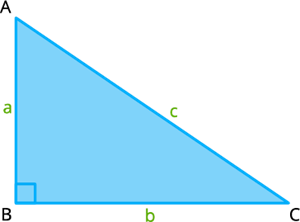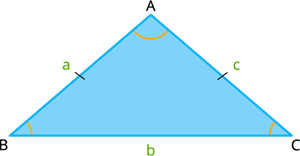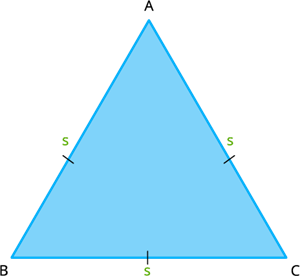UPSKILL MATH PLUS
Learn Mathematics through our AI based learning portal with the support of our Academic Experts!
Learn moreRight angle triangle: A triangle where one of its interior angles is a right angle 90°.

Area:
Area(A) = 1/2(b × h).
Thus, the height of the triangle(h) = Area × 2 / b.
And, the base of the triangle(b) = Area × 2 / h.
Where 'h' is denoted as the height and 'b' is denoted as the base.
Hypotenuse: The side opposite to the right angle is named the hypotenuse. It'll always be the longest side of a right triangle.
Sides: The 2 sides that aren't the hypotenuse makes the right angle.
Perimeter:
Perimeter(P) = a + b + c.
The side length of the right triangle are in relation a² + b² = c²
Where 'a', 'b' are the lengths of the other two sides.
And 'c' is the length of the hypotenuse.
Properties:
- If 2 sides which have the right angle are equal in length (AB and BC), then it said to be a right isosceles triangle.
- The hypotenuse (the side opposite the right angle) is usually longer than either of the other two sides meaning that it can never be an equilateral triangle.
Isosceles triangle: A triangle which has two of its sides equal in length.

Area:
Area(A) = 1/2(b × h)
Thus, the height of the triangle(h) = Area × 2 / b.
And, the base of the triangle(b) = Area × 2 / h.
Where 'h' is denoted as the height(altitude) and 'b' is denoted as the base.
The altitude can be calculated by h = √( a² - b²) / 4
Perimeter:
In here a = c, we have (P) = a + b + c.
Substitute the known value.
P = a + b + a =2a+b
P = 2a+b
Where 'a' is the lengths of the two equal sides and 'b' is the lengths of the other sides.
Properties:
- The 'base' of the triangle is referred to the unequal side of an isosceles triangle.
- The base angles of an isosceles triangle are always equal. That is ∠ABC = ∠ACB.
- The altitude is a perpendicular distance from the base to the opposite vertex.
Important!
- When the 3rd angle of an isosceles triangle is a right angle, it is called a "right isosceles triangle".
- If all three sides are the same length, it is called an equilateral triangle.
- All the equilateral triangles will satisfy all the properties of an isosceles triangle.
Equilateral triangle: A triangle which has all three of its sides equal in length.

Area:
Area(A) = √3/4 ×s² square units.
Where 's' denotes sides of the triangle.
Perimeter:
Perimeter(P) = a + b + c or P = s + s + s.
Where 's' is the lengths of the three equal sides.
Properties:
- All three angles of an equilateral triangle are the same. Thus, the angles ∠ABC, ∠CAB and ∠ACB are always the same. Since the angles are the same and the internal angles of any triangle always add to 180°, each interior angle of an equilateral triangle is 60°.
- An equilateral triangle is one in which all three sides are congruent (same length). Because it also has the property that all three interior angles are equal.